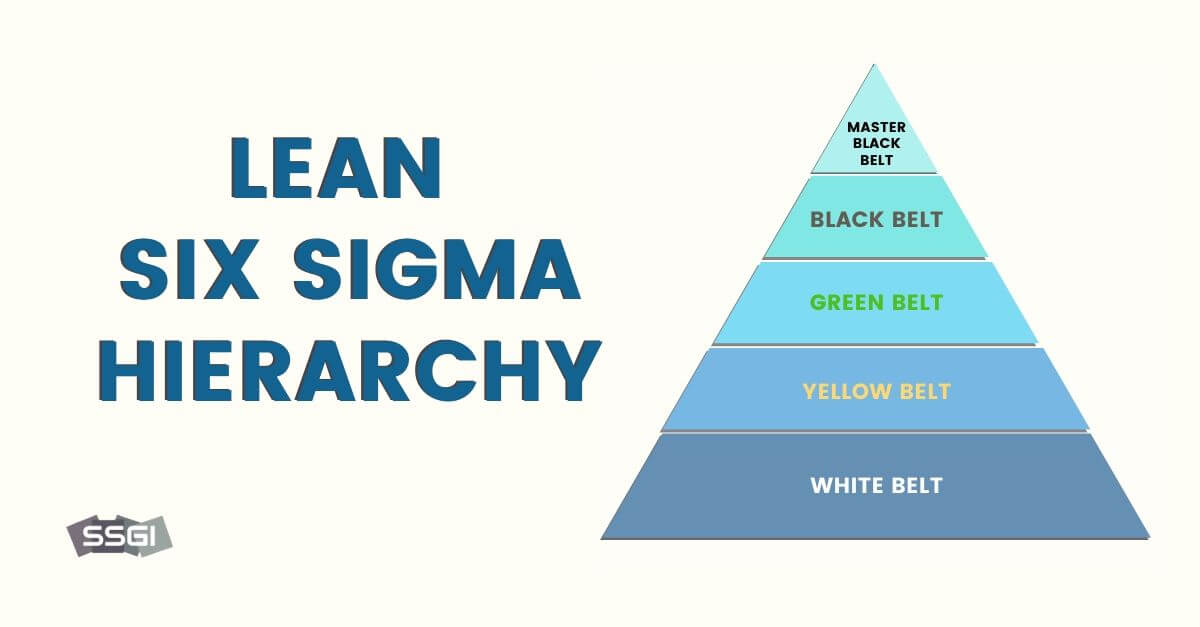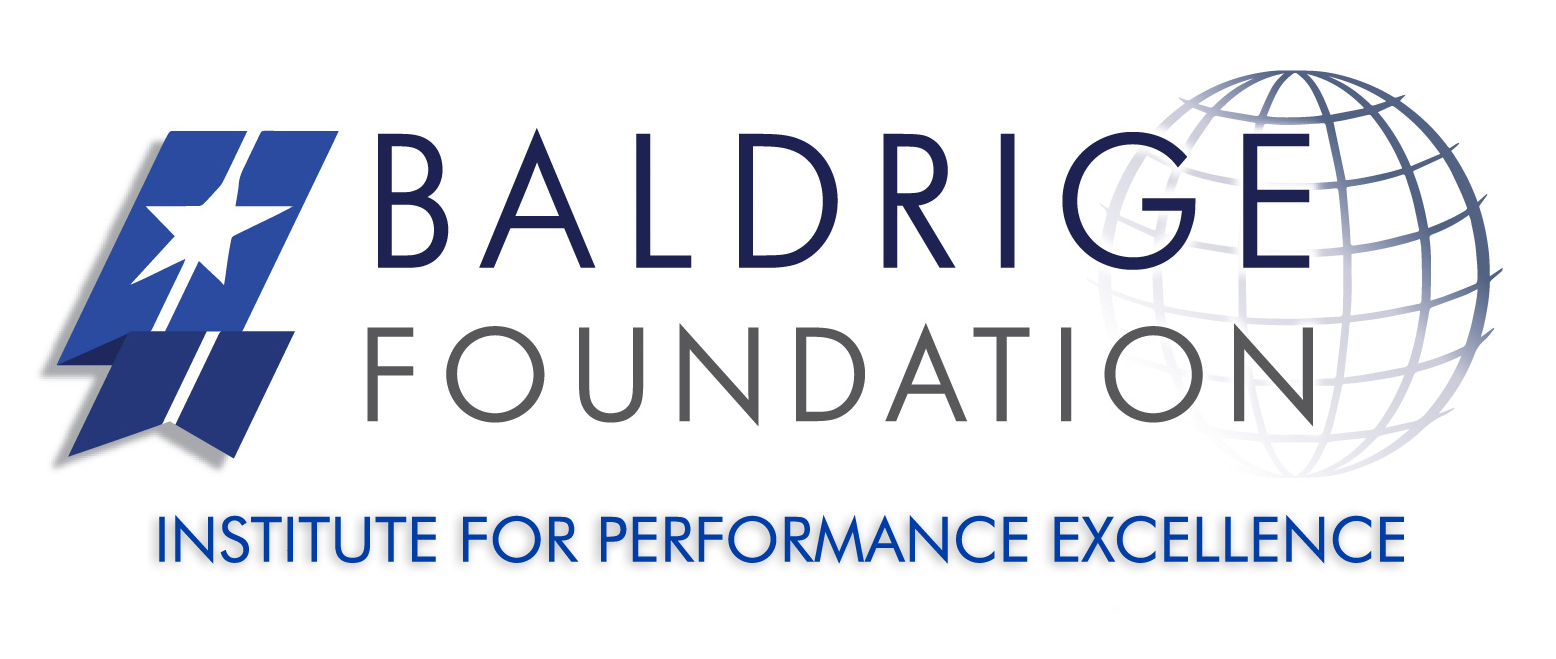Best Six Sigma Certification Courses in 2024 – View Our List of Top 5
Best Six Sigma Certification Courses in 2024

Where is the best place to get six sigma Certification?
Six Sigma Global Institute (SSGI) was founded by Dr. Barry Shore, Professor Emeritus at the University of New Hampshire and an industry consultant with over 40 years’ experience in process improvement education. SSGI is one of the world’s leading professional bodies for Six Sigma certification. In addition to SSGI having an acclaimed professor and award winning author in operations management behind its trainings, they also include all of the necessary training materials with certification exam costs included in the one time payment. Unlike other providers you do not have to pay an extra fee for exam retakes or certification renewals. With unprecedented recognition as a Baldrige Foundation partner, Project Management Institute accredited training provider, Society for Human Resource Management (SHRM) member and CPD accredited, SSGI offers a combination of quality and recognition at an affordable price. The American Society for Quality (ASQ) is a globally-recognized corporation that offers training and certification according to industry standards, as well as a certification verification registry.They also offer a variety of different certification programs and courses.
Another benefit of SSGI programs is there focus on real-world application through the use of case studies and examples that assist students in understanding how they can apply the skills they learn in the course to their everyday job. This results in delivering one of the best six sigma certification courses available.
LSSYB Training Course
The yellow belt program is perfect for beginners and serves as an introduction to six sigma. This is the best course for those new to six sigma and process improvement. If you do not have any previous experience or knowledge in process improvement, or are making a career change, the yellow belt training course is a great place to start.
The certification program costs $125 (includes online training) with a yellow belt certification. No additional fees or renewal required.
LSSGB Training Course
The green belt training program is perfect for those with some applicable experience who are seeking to improve problem-solving skills. Upon completing this program you will be prepared to work within project teams that are focused on process improvement initiatives. You will also be prepared to assist higher level belts and oversea small projects. This is the best six sigma certification course for those with some experience.
The certification program costs $257 (includes online training) with green belt certification. No additional fees or renewal required.
LSSBB Training Course
The black belt program is an advanced level course in process improvement that is specific to those who have pre existing experience and knowledge in the field of process improvement. Upon completing this program you will not only be prepared to work within medium to large scale process improvement initiatives, but also lead projects across multiple areas of an organization. This is the best six sigma certification course for experienced professionals with a background in process improvement.
The certification program costs $399 (includes online training), optional project component and Black Belt certification. The program also revisits previous belt level topics for reinforced coverage. No additional fees or renewal required.
LSSMB Training Course
The Master Black Belt program is the highest level of six sigma certification and is only applicable to those who hold a Black Belt certification. Upon completing this program and the required project component, you will be prepared to lead improvement projects across an organization as well as coach and educate other on the methodologies of lean six sigma.
The certification program costs $699 (includes online training), project component and Master Black Belt certification. No additional fees or renewal required.
Why You Should Consider SSGI Certification
If you are looking for a combination of affordability, flexibility and recognition, SSGI serves as a great option. Take a look at their reviews on Project Management Institute and you will see they have over 1,500, 4.5 star student reviews. In addition, there are many students who post daily about their experience with SSGI on LinkedIn.
Why you shouldn’t consider SSGI Certification
If you prefer an in-person option, are not interested in receiving a training component or are on a very tight budget, you may want to consider other options.
ASQ
LSSBB Program
The Certified Six Sigma Black Belt is a proficient expert with the ability to articulate Six Sigma principles, encompassing its underlying framework and tools. A Black Belt showcases leadership in team dynamics, effectively delegates team member roles and responsibilities, and holds a thorough grasp of the entire define, measure, analyze, improve, and control (DMAIC) model within the framework of Six Sigma standards. Additionally, they possess foundational knowledge in lean enterprise concepts, enabling them to identify non-value elements, actions, and apply specific tools.
Cost for Black Belt (Certification only): $568 (does not include training). Retakes: $368, Renewals needed.
Why you should consider ASQ Certification
If you are seeking the most in-depth certification with the highest requirements that is designed from a highly technical perspective. Also if you are seeking to purchase training separately from certification for an additional price.
Why you shouldn’t consider ASQ Certification
ASQ has some of the highest prerequisites out of any provider and the six sigma exams are highly comprehensive and technically focused. In addition, you must purchase training for a separate fee, so the total cost of training and certification is well above the cost of other providers on this list. If you do not require such a high level of certification you might want to consider looking elsewhere.
Baldrige Foundation (SSGI Partner)
IASSC
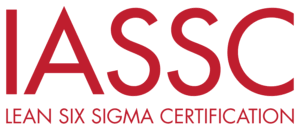
IASSC stands as a Professional Association dedicated to elevating and advancing standards within the Lean Six Sigma Community. Serving as an independent third-party certification body, IASSC is committed to fostering growth in Lean Six Sigma.
The IASSC Certified Lean Six Sigma Black Belt (ICBB) is a professional well-versed in the Lean Six Sigma Methodology, leading intricate improvement projects, usually in a full-time capacity. With a profound understanding of all facets of the Lean Six Sigma Method, including expertise in the phases of Define, Measure, Analyze, Improve, and Control (DMAIC), as outlined by the IASSC Lean Six Sigma Black Belt Body of Knowledge™, a Lean Six Sigma Black Belt possesses the ability to implement, perform, interpret, and apply Lean Six Sigma at an advanced level.
To earn the prestigious designation of IASSC Certified Black Belt (IASSC-CBB) from the International Association for Six Sigma Certification, individuals must take the IASSC Certified Lean Six Sigma Black Belt Exam and achieve a minimum score of 70%. There are no prerequisites to sit for the IASSC Certified Lean Six Sigma Black Belt Exam.
LSSBB Certification
Cost of Six Sigma Black Belt Certification: $395 (training not included). Additional fees and renewal required.
Why you should consider IASSC Certification
If you are seeking just certification and do not need training. Also if you prefer a certification from a company located outside of North America.
Why you shouldn’t consider IASSC Certification
IASSC might not be appropriate if you are seeking to get certified by an institute that is located in North America as IASSC is based in Cyprus under the PeopleCert company. In addition, IASSC only offers certification and you must purchase training separately. The majority of IASSC accredited training providers are located outside of North America with only a couple providers in the United States.
Villanova Six Sigma

Villanova University’s online programs provide hands-on experience through simulated projects and advanced animations, ensuring you are well-prepared for real-world applications.
Villanova University is a private institution renowned for its exceptional business school. This reputation adds a significant level of credibility to its Six Sigma and Lean Six Sigma certificates making it the most recognized university level six sigma certification. These industry best six sigma certification courses are relevant to managers, looking to learn process mapping, problem analysis, decision analysis, and other problem-solving tools.
Each course requires a varying time commitment; for instance, the Six Sigma Green Belt course spans eight weeks, while the Lean Six Sigma Black Belt course extends over 16 weeks. The duration for other courses is eight weeks each.
To enroll in the advanced Belt courses, you need to hold the certificate from the preceding tier. For instance, to undertake the Lean Six Sigma Black Belt course, possession of a Six Sigma Green Belt is a prerequisite. However, belts from other institutions may fulfill this requirement with approval from the University.
LSSBB Training Program
Scheduled based and virtual led Villanova’s Six Sigma Black Belt Certification costs $4,095 (training included).
Why you should consider Villanova Certification
If you like the idea of having a university name behind your certification and enjoy the idea of getting trained on a set schedule, Villanova can be a good option for those pursing six sigma certification programs.
Why you shouldn’t consider Villanova Certification
If cost is a factor, then perhaps you may want to consider other options as Villanova’s six sigma programs are amongst the most expensive ($2,000 and up) offerings in the industry. In addition, Villanova courses are scheduled and not self-paced, so if flexibility is a priory, this could be an issue.
The Best Six Sigma Certification for Beginners
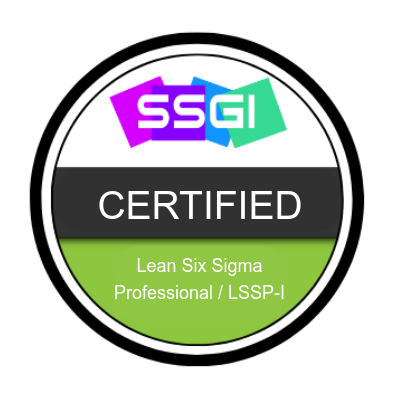 The best six sigma certification program for beginners is the LSSP-I through SSGI. This program starts off with the LSSYB course and is directed to those new to process improvement. The next six sigma course is the LSSGB. This is an intermediate level six sigma certification. The final course in this program is the Lean Practitioner, a course focused on the methodology of Lean and applying the concepts to improve efficiency within organizations. Upon completion of all 3 courses, you will be aware the designation of LSSP-I.
The best six sigma certification program for beginners is the LSSP-I through SSGI. This program starts off with the LSSYB course and is directed to those new to process improvement. The next six sigma course is the LSSGB. This is an intermediate level six sigma certification. The final course in this program is the Lean Practitioner, a course focused on the methodology of Lean and applying the concepts to improve efficiency within organizations. Upon completion of all 3 courses, you will be aware the designation of LSSP-I.
The Best Six Sigma Certification for Experts
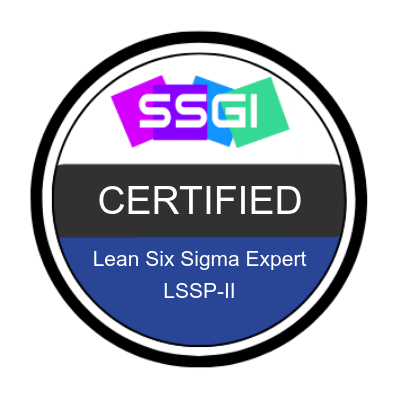 The best six sigma certification program for beginners is the LSSP-II through SSGI. This program starts off with the LSSBB course and is directed to those new to process improvement. The next six sigma course is the LSSMB. This is an intermediate level six sigma certification. The final course in this program is the Lean Practitioner, a course focused on the methodology of Lean and applying the concepts to improve efficiency within organizations. Upon completion of all 3 courses, you will be aware the designation of LSSP-II.
The best six sigma certification program for beginners is the LSSP-II through SSGI. This program starts off with the LSSBB course and is directed to those new to process improvement. The next six sigma course is the LSSMB. This is an intermediate level six sigma certification. The final course in this program is the Lean Practitioner, a course focused on the methodology of Lean and applying the concepts to improve efficiency within organizations. Upon completion of all 3 courses, you will be aware the designation of LSSP-II.
The Best Six Sigma Certification for Healthcare Professionals
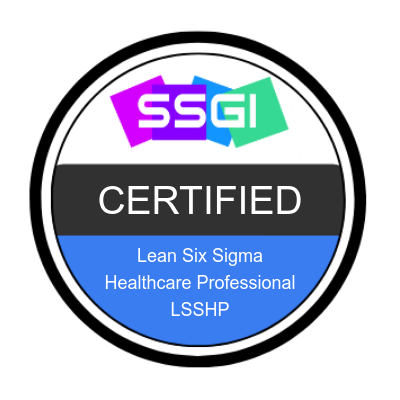 The best six sigma certification program for beginners is the LSSHP through SSGI. This program starts off with the LSSYB course and is directed to those new to process improvement. The next six sigma course is the LSSGB. This is an intermediate level six sigma certification. The final course in this program is the Lean Practitioner, a course focused on the methodology of Lean and applying the concepts to improve efficiency within organizations. Upon completion of all 3 courses, you will be aware the designation of LSSP-I.
The best six sigma certification program for beginners is the LSSHP through SSGI. This program starts off with the LSSYB course and is directed to those new to process improvement. The next six sigma course is the LSSGB. This is an intermediate level six sigma certification. The final course in this program is the Lean Practitioner, a course focused on the methodology of Lean and applying the concepts to improve efficiency within organizations. Upon completion of all 3 courses, you will be aware the designation of LSSP-I.
What to Consider When Choosing a Six Sigma Certification Course?
The answer to “where is the best place to get six sigma certification?” or “what is the best lean six sigma course for me?” is not straightforward, nor the same for each individual. From pricing, to recognition, to the quality and background of the instructor who is delivering the training, there are a number of factors that you must take into consideration. Are you seeking a flexible self-paced six sigma program? As you can imagine, there are many factors that should go into your decision when it comes to deciding which six sigma training program best suits your goals.
Online Vs In-Person Six Sigma

Choosing between online and in-person Six Sigma certification courses is a crucial decision influenced by various factors. Online courses offer flexibility, allowing self-paced learning from any location, catering to busy professionals. In contrast, in-person courses provide a traditional classroom setting, fostering immediate interaction and hands-on experiences.
The choice depends on financial and personal preferences, schedule constraints, and the desired level of interactivity. Online courses suit those valuing flexibility, while in-person courses cater to individuals seeking a structured learning environment willing to spend more money. Assess your learning style and professional commitments to make an informed decision on the most suitable Six Sigma certification format.
Accredited Vs Non Accredited

University vs Private
The Significance of a Reputable Instructor for Six Sigma Training
 In the realm of Six Sigma education, the developer behind the training holds paramount importance. It’s essential to choose a six sigma program crafted by a reputable name, ensuring the quality, credibility, and effectiveness of the content. You want to be assured you are learning from an instructor with extensive experience in Six Sigma. You may want to urge caution if an organization does not have an informative about us page showing names and faces of actual people. Furthermore, if an organization does not disclose the specific individual(s) that are behind their training offerings, this is a reason for caution. Transparency and a distinguished course developer are vital aspects of high-quality training programs, as some of the best six sigma certification programs have been designed by acclaimed instructors. Choosing a Six Sigma certification with a reputable name behind it is a guarantee of excellence, providing you with the skills and knowledge needed for success in process improvement and quality management.
In the realm of Six Sigma education, the developer behind the training holds paramount importance. It’s essential to choose a six sigma program crafted by a reputable name, ensuring the quality, credibility, and effectiveness of the content. You want to be assured you are learning from an instructor with extensive experience in Six Sigma. You may want to urge caution if an organization does not have an informative about us page showing names and faces of actual people. Furthermore, if an organization does not disclose the specific individual(s) that are behind their training offerings, this is a reason for caution. Transparency and a distinguished course developer are vital aspects of high-quality training programs, as some of the best six sigma certification programs have been designed by acclaimed instructors. Choosing a Six Sigma certification with a reputable name behind it is a guarantee of excellence, providing you with the skills and knowledge needed for success in process improvement and quality management.
How to Determine which six sigma certification is best for you
- Define Your Career Objectives: Begin by identifying your professional goals. Different Six Sigma certifications cater to various career paths, such as project management, quality control, or process improvement. Knowing your objectives will guide you in choosing the most relevant certification.
- Assess Your Current Skills and Experience: Begin by evaluating your existing skills and experience in process improvement and quality management. This self-assessment will guide you toward the appropriate belt level—Yellow Belt for beginners, Green Belt for those with some experience, and Black Belt for seasoned professionals.
- Understand Certification Levels: Six Sigma certifications come in different levels, including Yellow Belt, Green Belt, Black Belt, and Master Black Belt. Evaluate your current skills and experience to determine the appropriate level. For beginners, starting with Yellow or Green Belt may be ideal, while experienced professionals may opt for higher levels.
- Review Training Formats: Six Sigma certifications are offered through various training formats, including online courses, in-person workshops, or a combination of both. Consider your preferred learning style, schedule constraints, and the level of interactivity you desire when selecting a training format.
- Evaluate Time Commitment: The time required to complete Six Sigma certifications can vary. Assess your availability and dedication to studying and completing projects. Some certifications may be more intensive than others, so choose one that fits your time constraints.
- Review Course Content: Examine the curriculum of each certification program. Ensure it covers the essential topics relevant to your career objectives. Look for programs that provide practical, real-world applications of Six Sigma methodologies.
- Check Cost and Return on Investment: Evaluate the cost of certification, including training materials, exams, and any additional fees. Consider this investment in relation to the potential career benefits and salary increases associated with obtaining the certification.
By taking a methodical approach to these considerations, you can pinpoint the Six Sigma certification belt level that aligns with your skills, experience, and career objectives, setting you on a path toward excellence in process improvement and quality management.
WHAT ARE SIX SIGMA CERTIFICATIONS?
In the fast-paced landscape of business and industry, achieving operational excellence is paramount. Six Sigma certifications stand as powerful endorsements of an individual’s proficiency in implementing and driving quality improvements within an organization. Let’s delve into what exactly Six Sigma certifications entail and why they are essential for professionals seeking to elevate their careers.
List of Most Popular Six Sigma Certification Courses
Six Sigma certifications validate an individual’s mastery of Six Sigma methodologies and their ability to contribute to process improvement initiatives. These certification courses are structured across different levels, called six sigma belts. Each level signifying a varying degree of expertise. There are six sigma courses for beginners, such as the Yellow Belt and six sigma courses for experts, such as the Master Black Belt. Below you can find in-depth video describing the topical coverage of each six sigma belt level.
Six Sigma Belts Include:
- Yellow Belt: Provides a foundational understanding of Six Sigma concepts and terminologies.
- Green Belt: Equips individuals with the skills to lead and execute process improvement projects within their teams.
- Black Belt: Demonstrates an advanced understanding, allowing individuals to lead and mentor Green Belt projects.
- Master Black Belt: Represents the highest level, indicating a comprehensive mastery of Six Sigma principles and the ability to guide organizational strategy.
Yellow Belt Training Course
Green Belt Training Course
The LSSGB course is geared towards those seeking comprehensive training in Lean Six Sigma methodologies and tools. The best Green Belt training courses will equip participants with skills to drive improvements within their departments and project teams. It’s a perfect six sigma program for those who have some past experience or educational background in process improvement.
Black Belt Training Course
The LSSBB course is designed for experienced professionals responsible for leading process improvement initiatives and optimizing operations. The best Black Belt training courses offer in-depth training in statistical analysis and process improvement tools that will assist in helping one lead process improvement projects within an organization. These programs usually include a project component, if they do not, urge caution.
Master Black Belt Training Course
The LSSMB and SSMB course is aimed at subject matter experts or senior leaders shaping organizational strategies. The best Master Black Belt training courses provide advanced training in strategic planning, management, and coaching. The course will prepare individuals to lead transformative change across an organization. There is also a complex project component that is required for this level of certification. In addition, one must already hold a Black Belt certification to be eligible.
Selecting the right Six Sigma certification depends on your role, experience level, and career aspirations. Whether you’re an entry-level professional seeking foundational knowledge or a seasoned leader aiming for strategic impact, there’s a Six Sigma certification tailored for your journey.
In summary, Six Sigma certifications are not just badges of honor; they represent a commitment to excellence and continuous improvement. Explore the various certification levels to find the one that aligns with your goals and embark on a journey towards unlocking the full potential of Six Sigma methodologies.
Career Advancement
It’s a recurring scenario: individuals armed with MBA or other advanced degrees struggle to secure opportunities in their preferred industry. However, upon acquiring Six Sigma certification, their fortunes take a sudden turn. The pervasive adoption of Six Sigma methodologies by many companies has significantly influenced one’s chances of securing their ideal job. Employers, driven to eliminate business errors, find themselves facing a shortage of certified professionals to meet the global demand. A Six Sigma qualification often propels candidates to the forefront of the resume stack once recognized by HR. This is why it’s pivotal you chose one of the most recognized and best lean six sigma certification providers available.
Competitive Edge
Obtaining a Six Sigma certification provides a distinct competitive advantage in today’s job market. This globally recognized qualification signifies your expertise in implementing data-driven strategies to enhance process efficiency, reduce errors, and drive organizational success. Employers value the problem-solving skills and analytical mindset that come with Six Sigma certification, making you a standout candidate for roles across various industries. Whether you’re seeking a career change or aiming for advancement in your current field, Six Sigma certification positions you as a valuable asset, giving you a competitive edge in the professional landscape.
Leadership Opportunities
Six Sigma certification not only enhances your problem-solving and process improvement skills but also positions you for leadership opportunities within an organization. As a certified professional, you demonstrate a commitment to quality, efficiency, and continuous improvement – qualities highly sought after in leadership roles. Employers recognize the strategic mindset and analytical capabilities that come with Six Sigma training, making you a prime candidate for managerial positions. Whether you aspire to lead process improvement initiatives or guide teams toward operational excellence, Six Sigma certification opens doors to leadership roles where your expertise can drive positive organizational change.
Organizational Impact
Professionals often seek certification to make a substantial impact on their organization by implementing Lean Six Sigma principles, resulting in improved quality, customer satisfaction, and overall operational efficiency.
Process Improvement Skills
The methodologies taught in Lean Six Sigma empower individuals to identify and rectify inefficiencies in processes, leading to heightened productivity and cost-effectiveness.
Is Six Sigma right for me? Who benefits from Six Sigma? These are questions that we often get asked. The answer is straightforward, Six Sigma certification is beneficial for a wide range of professionals across various industries who are involved in process improvement, quality management, and organizational efficiency. Here are some groups of individuals who can benefit from Six Sigma certification:
- Quality Professionals: Quality assurance and control professionals seeking to enhance their skills in improving processes and reducing defects.
- Project Managers: Project managers looking to implement data-driven methodologies for better project outcomes and efficiency.
- Operations Managers: Operations managers aiming to streamline processes, reduce waste, and enhance overall operational efficiency.
- Manufacturing Professionals: Professionals in manufacturing industries interested in optimizing production processes and improving product quality.
- Business Analysts: Business analysts seeking to use statistical tools and methodologies for data analysis and process improvement.
- Supply Chain Managers: Professionals in supply chain management interested in improving logistics and overall supply chain efficiency.
- Process Engineers: Process engineers looking to enhance their knowledge of process improvement methodologies and tools.
- Consultants: Management and process improvement consultants aiming to provide valuable insights and solutions to clients.
- Healthcare Professionals: Healthcare professionals interested in improving processes, reducing errors, and enhancing patient care.
- IT Professionals: IT professionals seeking to apply Six Sigma principles to improve software development processes and project management.
- Financial Analysts: Financial analysts looking to apply statistical methods for financial analysis and optimization.
- Human Resources Professionals: HR professionals interested in applying process improvement methodologies to HR processes and employee management.
- Entrepreneurs and Business Owners: Entrepreneurs and business owners aiming to enhance overall business efficiency and customer satisfaction.
- Educators: Educators interested in incorporating Six Sigma principles into their teaching and research methodologies.
- Anyone Interested in Process Improvement: Individuals from diverse backgrounds who have an interest in improving processes and contributing to organizational success.
Six Sigma principles are versatile and can be applied across various functions and industries. Whether you work in manufacturing, healthcare, finance, or IT, Six Sigma provides a structured and data-driven approach to achieving operational excellence.
How to become six sigma certified?
To become a Six Sigma certified professional, you can follow these general steps.
- Understand Six Sigma: Familiarize yourself with the fundamentals and principles of Six Sigma, which is a methodology focused on process improvement and reducing defects.
- Choose a Certification Level: Lean Six Sigma certifications are typically categorized into different belts (e.g., Yellow Belt, Green Belt, Black Belt, Master Black Belt). Choose the level that aligns with your career goals and expertise. Each belt builds upon the preceding level and includes more in-depth coverage.
- Select a Provider: Choose a reputable certification body, like one from our list of best six sigma certification institutes. Well-known organizations include the American Society for Quality (ASQ), Baldrige, Six Sigma Global Institute and others.
- Acquire Relevant Experience: Some certification bodies may require a certain amount of work experience in a role that involves process improvement. Check the specific eligibility criteria for the certification level you’re pursuing.
- Complete Training: Enroll in a Six Sigma training program. Training is often available through workshops, online courses, or in-house training programs. Ensure that the training program is accredited by the chosen certification body.
- Pass the Certification Exam: Successfully complete the certification exam, which typically assesses your knowledge of Six Sigma concepts, tools, and methodologies. Exam formats may include multiple-choice questions, case studies, or project assessments.
- Submit a Project (if required): Some certification levels, especially Green Belt and Black Belt, may require candidates to complete a real-world project that demonstrates their application of Six Sigma principles. Ensure you understand and fulfill any project requirements.
- Maintain Certification (if applicable): Some certifications require ongoing professional development to maintain your certification status. Stay informed about any continuing education or renewal requirements.
Maintaining six sigma certifications
A question often asked is “Do I need to renew my six sigma certification?” This depends on the provider as there is no set industry standard. Some providers make you renew every year, while others make you renew every 3 years. With that being said there are also a handful of providers that offer lifetime valid certification, where you do not need to pay any additional fees to maintain your certification. At the end of the day, renewals always come with fees and truth be told, many companies nickel and dime their clients. In addition, there are select providers that also charge extra fees for reattempting examination. We urge you to look through our list of the best six sigma certification courses to understand the criteria for each institute, as it differs from each provider.
Six Sigma certification salaries and career opportunities
According to Indeed.com the national average salary for a Certified Green Belt in 2024 is $95,261 per year in the United States.
Lean Six Sigma Yellow Belt Salary
Yellow Belts are trained professionals who work within project teams and have developed a basic understanding of Lean Six Sigma at a professional level. According to PayScale, the average salary for a Lean Six Sigma Yellow Belt in the United States is $65,000 per year, with a range of $50,000 to $85,000 per year. The salary for ta Yellow Belt can vary depending on factors such as pre existing knowledge and time in the workforce.
Lean Six Sigma Green Belt Salary
Green Belts are trained professionals who lead and participate in Lean Six Sigma projects and provide support to Black Belts. According to PayScale, the average salary for a Lean Six Sigma Green Belt in the United States is $76,000 per year, with a range of $53,000 to $107,000 per year.
Lean Six Sigma Black Belt Salary
Black Belts are highly trained professionals who lead and manage Lean Six Sigma projects and provide training and mentorship to Green Belts. According to PayScale, the average salary for a Lean Six Sigma Black Belt in the United States is $96,000 per year, with a range of $67,000 to $134,000 per year. The salary for this role can vary depending on factors such as industry, company size, and location.
Six Sigma Master Black Belt Salary
Master Black Belts are senior-level executives who provide support, resources, and leadership to Lean Six Sigma initiatives. According to PayScale, the average salary for a Lean Six Sigma Champion in the United States is $138,000 per year, with a range of $80,000 to $225,000 per year.

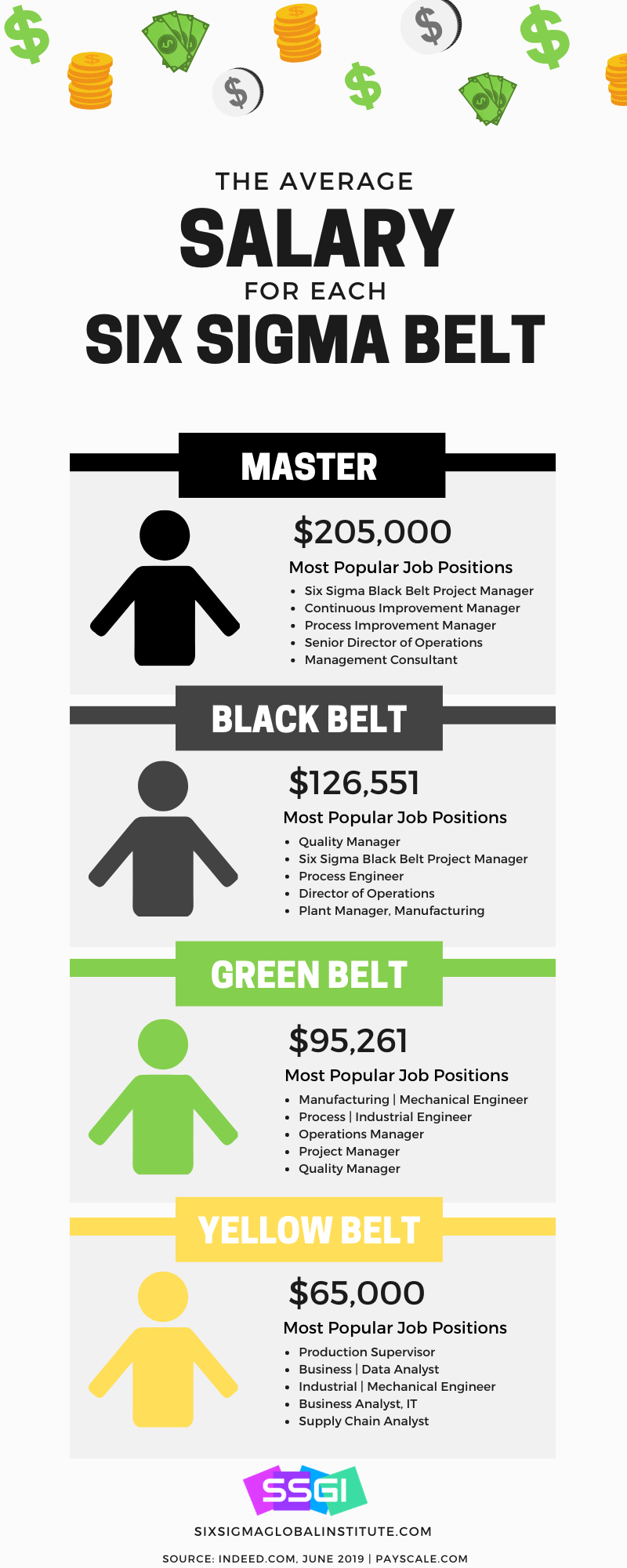
BENEFITS OF SIX SIGMA TRAINING
Improved Process Efficiency: Six Sigma equips individuals with tools to identify and eliminate defects or inefficiencies in processes, leading to streamlined and more efficient workflows.
Enhanced Problem-Solving Skills: Six Sigma emphasizes data-driven decision-making and problem-solving methodologies, empowering professionals to address challenges systematically.
Leadership Development: Six Sigma training, especially at higher belt levels, involves leadership and project management skills development, preparing individuals to lead improvement initiatives.
Competitive Advantage: Organizations that successfully implement Six Sigma practices often gain a competitive edge by consistently delivering high-quality products or services.
Data-Driven Decision-Making: Six Sigma emphasizes the importance of collecting and analyzing data to drive decision-making. This leads to more informed and strategic choices within an organization.
Benefits of Six Sigma Certification
Increased Employability: Employers often seek Six Sigma-certified professionals for roles requiring expertise in process improvement and quality management.
Higher Earning Potential: Six Sigma certification can lead to higher earning potential as organizations recognize and reward the specialized skills and knowledge that certified professionals bring to the table.
Boost Promotion Chances: Demonstrating a commitment to ongoing learning enhances your appeal to employers. A Six Sigma certification showcases valuable problem-solving skills, signaling personal development investment, elevating promotion prospects, and distinguishing you within your organization.
Ability to Drive Change: Certified individuals are equipped with the tools and methodologies to lead and implement positive changes within an organization, contributing to its overall success.
Become a Leader: Higher-level Six Sigma certifications, such as Green Belt and Black Belt, include leadership and project management components, preparing individuals for roles with increased responsibilities.
Most recognized six sigma certification program

Joe Biden presenting the Baldrige National Quality Award.
A question often asked is, who is at the forefront for lean six sigma and process excellence? Some believe the answer is ASQ and others IASSC. However, there is one prestigious institution that at it’s core has it’s principles and framework rooted into the foundation of lean six sigma. If you take a look at the curriculum covered for exams such as the Black Belt certification at ASQ or IASSC, you will see that there is coverage aligned to the Baldrige Foundation and how the foundation has played a pivotal role in establishing a framework for process excellence that is followed by industry leaders throughout the world.
Six Sigma Certification FAQs
Which Six Sigma certification is most recognized in world?
Can I get Six Sigma certified if I don't have a background in statistics?
Will Lean Six Sigma certification help me increase my salary or get a competitive job?
What level of six sigma certification is considered the highest?
How Long Does It Take to Get Six Sigma Certification?
How long is a Six Sigma certification valid?
Can I get certified online, or is in-person training better?
Every top six sigma certification provider offers an online option. In-person or schedule based training options are available for some. The choice depends on your learning preferences, schedule, and the level of interaction you desire. Online courses offer flexibility, while in-person sessions provide a traditional classroom experience. So if you are wondering if you can find some of the best six sigma certification courses offered online, the answer is yes.
How do I choose the right Six Sigma certification level?
Your choice depends on your career goals, current knowledge of Six Sigma, and the level of involvement you want in process improvement projects. Beginners might start with Yellow or Green Belt, while experienced professionals can pursue higher levels.
What is the difference between Six Sigma and Lean Six Sigma certification?
Lean focuses on efficiency, such as cutting out waste. Six Sigma on the other hand focuses on quality, such as controlling the quality of products and services. When combined you have Lean Six Sigma. An approach that integrates both methodologies to form what is widely adopted and valued by organizations across every sector and industry. A Lean Six Sigma certification course covered the same topics as a Six Sigma course, the only difference is that it also covers Lean topics and integrates both concepts. In today’s competitive business environment, most organization prioritize Lean Six Sigma as the methodology of choice.
Are there prerequisites for Six Sigma certification
Prerequisites vary by certification level and provider. Generally, Yellow Belt has no prerequisites, while higher levels may require prior experience, specific education, or completion of lower-level certifications.
Do I need to renew my Six Sigma certification?
Certification renewal requirements vary by provider. Some certifications require periodic recertification through continuing education or by demonstrating ongoing involvement in Six Sigma projects.
Where can I search for a Six Sigma certification?
Best University Six Sigma certification?
Most Affordable Six Sigma certification?
How can I decide which Six Sigma certification program best suits my goals?
What are the different Six Sigma belts?
